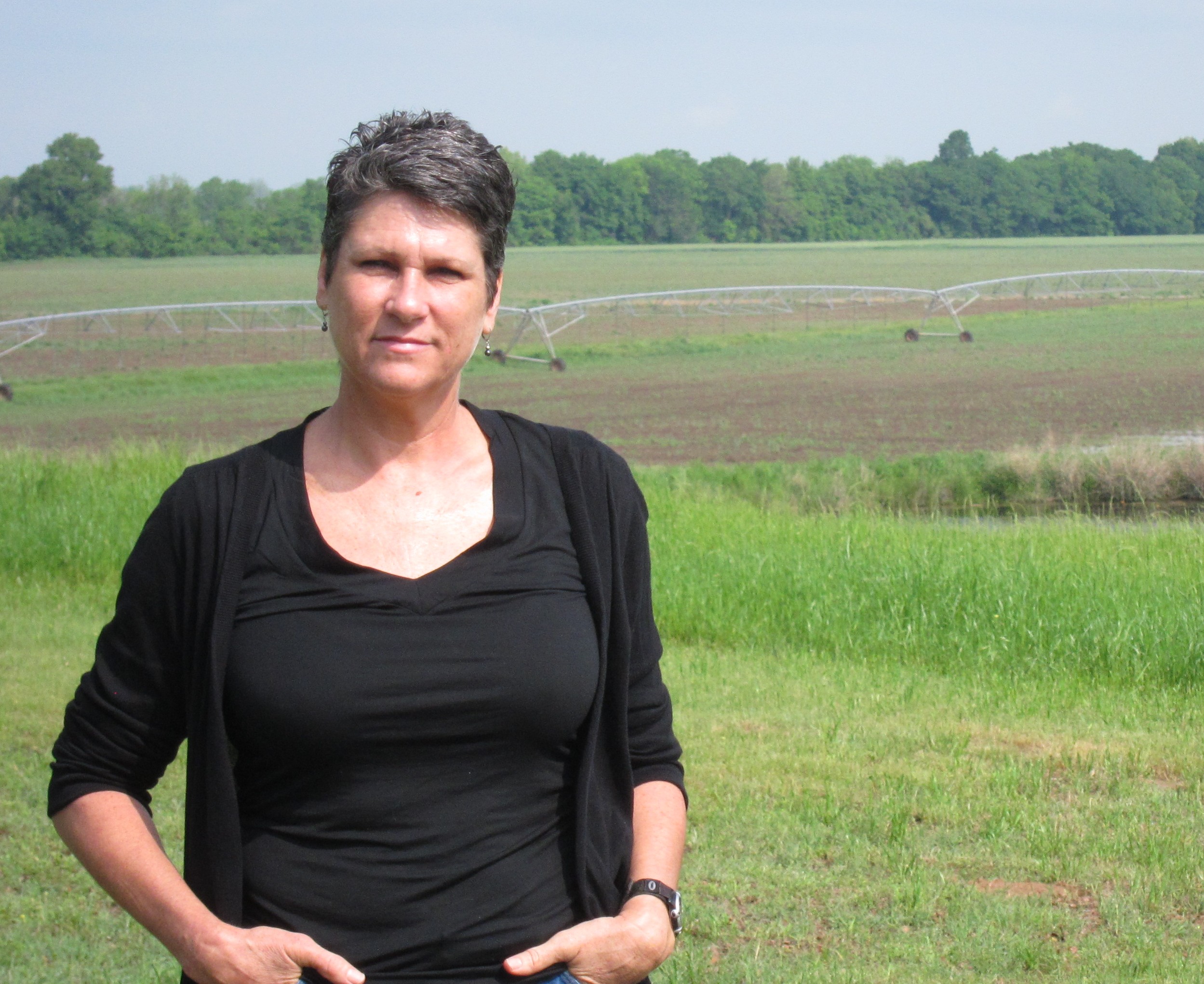Eminent Domain Casts its Long Shadow Over the Texas Legislature

Photo by Mose Buchele
It remains to be seen how recent state supreme court decisions about property rights will be handled in the Texas legislature.
Today in a Beaumont courthouse, Jefferson County Judge Tom Rugg will hear yet another case concerning the Keystone XL pipeline. As we’ve reported, the Canadian company TransCanada has visited a few Texas courthouses lately. Always at issue is whether it can take private property in Texas to build the Keystone XL pipeline.
And Judge Rugg expects we’ll see more pipeline companies visiting more Texas courthouses in the future.
By all estimations, the Denbury Green ruling on eminent domain by the Texas Supreme Court means nobody is quite sure where private property rights end, and a company’s right to take property begins.
“It’s opened up a real can of worms and I’m not sure how it’s gonna get resolved,” Judge Rugg tells StateImpact Texas.
But that doesn’t mean state lawmakers won’t try in the coming legislative session.
Check This Box For Eminent Domain
State Rep. Rene Oliveira [D-Brownsville] chairs the House Land and Resource Management Committee. At a panel discussion last week hosted by the Texas Tribune (and moderated by this reporter), he talked about how the debate over pipeline companies and private property starts with a one page state government form. It’s called a T-4 form.
“Sounds like something out of the Terminator movies,” Oliveira said. But by checking a box on that form, companies in Texas can suddenly claim the right of eminent domain.
“That’s all you had to do, and basically, you would become a common carrier, and you could build pipelines all across the state of Texas,” Oliveira said.
That is, until the Denbury ruling. It found that the T-4 process does not ensure that pipelines will hire their services out to carry materials for whoever can pay. If the pipelines can’t ultimately prove in court that they are “common carriers,” that means they have no right to take land. (But by the time the matter is settled in a court, the pipeline company could have already used eminent domain and constructed its pipeline.)
“That decision has left a lot of unanswered questions,” says Judge Rugg, “so there are a lot of legal issues that will have to be sorted through over the next few years.”
In the state legislature, it’s Rep.Oliveira’s committee that’s doing the sorting through.
The ‘Lose-Lose Bill’
Oliveira has already heard plenty of suggestions for how to reform eminent domain laws. You could have a state agency map out a pipeline’s course (an idea the industry, and Libertarian property rights advocates both hate). There could be some kind of hearing to figure out if a pipeline should qualify for ‘common carrier’ in the first place. And then there are those who want to do away with a company’s ability to use eminent domain at all.

Photo by Mose Buchele for StateImpact Texas
James Mann is a lawyer who works for pipeline companies in Texas.
Oliveira says with so many competing ideas, even if a bill is passed it’ll be sure to disappoint most people.
“It’s a lose-lose bill to carry, and I may be carrying it,” he said.
Though there are some small areas of agreement.
At that same panel where Oliveira spoke, pipeline and oil and gas industry representatives said they are sick of facing lawsuits challenging the use of eminent domain, especially in the midst of the Texas oil and gas boom.
James Mann, a lawyer for the Texas Pipeline Association, said pipeline companies might agree to do more to prove they have the right to take land, if it would provide some legal certainty.
“We don’t mind proving it,” he said. “We’d like to prove it just once, and we’d like to prove it before we start building pipelines.”
But even with some support from industry, it remains an open question exactly how much power the legislature will have over issues of eminent domain.
Not A Practical Matter
Back in Beaumont, Jefferson County Judge Tom Rugg says he’d like to see lawmakers fix the system. He’s just not sure if they can.

Photo by Dave Fehling/StateImpact Texas
Jefferson County Court at Law Judge Tom Rugg listens to arguments in the property rights case earlier this month.
“I think that’s difficult because of the constitutional protections that are afforded property owners in Texas,” Rugg tells StateImpact Texas. He sees the possibility of an even longer, harder slog into the heart of Texas law.
“A legislative solution may not, as a practical matter, be able to be accomplished without having a constitutional amendment election,” Rugg said.
And until that happens, he believes, the question of who gets to take land in Texas may continue to be fought courthouse by courthouse, county by county.


